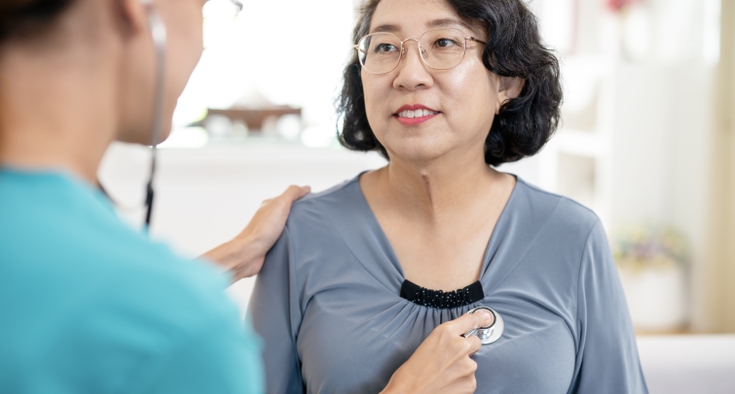If a TikTok influencer gives you medical advice, talk to an expert before you follow it. Here’s one example: Some influencers are promoting cheaper versions of trending weight loss drugs like Ozempic. The cheaper suggestion? Laxatives.

“A lot of my patients are overweight and have fixed incomes,” said Dr. Philip Lee, 45, noninvasive cardiologist at Novant Health Heart & Vascular Institute - Elizabeth. “I had to caution them about this advice. Yes, there can be temporary weight loss due to water loss. But overuse of laxatives can also cause you to dehydrate yourself and it can even lead to kidney failure. So laxatives are not a good, safe way for weight loss.”
Here’s more advice he’s tracked on TikTok: Cottage cheese as a healthy, surprisingly high source of protein that’s low-calorie. “In general, this is true and I would agree with it for the most part,” said Lee. “But this could actually be harmful for people with congestive heart failure because it’s high in sodium. Someone with congestive heart failure needs a low-sodium diet. If they eat cottage cheese in an effort to eat healthier, they can actually hurt their condition.”
While Lee doesn’t pretend to be a TikTok influencer, there are plenty of TikTok influencers who speak as if they are medical experts but have no supporting credentials. “Unfortunately with social media, there are reputable sources and then there are even more unreputable sources,” Lee said. “No one is vetting each other; anyone can pretend to be an expert as long as they sound like they know what they’re talking about.”
Exceptional cardiovascular care.
One academic study that analyzed TikTok videos featuring health information found that about 50% of those videos included falsehoods.
As a Gen-X-er, Lee only logs on to see what medical information or misinformation is circulating on TikTok.
He developed an interest in TikTok when more and more (often younger) patients started coming to him with questions related to educational content they had seen on the platform. Often, they come in with questions about predispositions and prevention.
“As a physician, I feel like I need to understand the power social media has both positively and not positively on people,” Lee said. “If I’m going to help my patients live their best lives, I need to understand the world they’re in and the influences they’re under. As a parent of an 11-year-old, I’m also trying to be aware of TikTok friends and influences in that peer group.”
In his work as a noninvasive cardiologist, Lee treats a large swath of cardiovascular disease and health. “That’s part of the fun, the continuum of age groups and stages in life that I treat,” he said. “I handle all sorts of cardiac conditions from advanced critical conditions like heart attacks, to noncritical conditions like heart flutters, to symptoms that could be heart-related like chest pain, windedness and fatigue.”
This also means he handles a lot of questions – often influenced by TikTok research – about a lot of different cardiac conditions.
“I want to be aware of what other sources of information are out there and what they’re telling my patients with matters of the heart,” Lee said. “I want to be mindful and be proactive – if I sense a disconnect I can approach it, or if a patient asks me about something they saw on TikTok, I can at least put some thought behind it before I get approached about it.”
To be clear, Lee isn’t against patients doing their research, whether it’s a Google search or a TikTok scroll.
“Every patient I meet, I assume they’ve looked something up,” he said. “The better a patient is educated, the more they understand their own disease process or issue, the more likely they will be to work on it.
“Being more prepared will allow them to come in and understand better. But it’s also important that that research comes from a reputable source, whether that’s the Novant Health website or government sites like the Centers for Disease Control and Prevention. And one more rapidly growing search option to be cautious with: AI chat bots that spit out information with no links or sourcing to the information they provide.
Once you do your research, make sure you talk to your physician. “Every condition affects every patient differently, so you need to talk to your physician, who knows you and your situation, and who can help tailor how to manage your condition,” Lee said. “No website or influencer can do that for you.”











